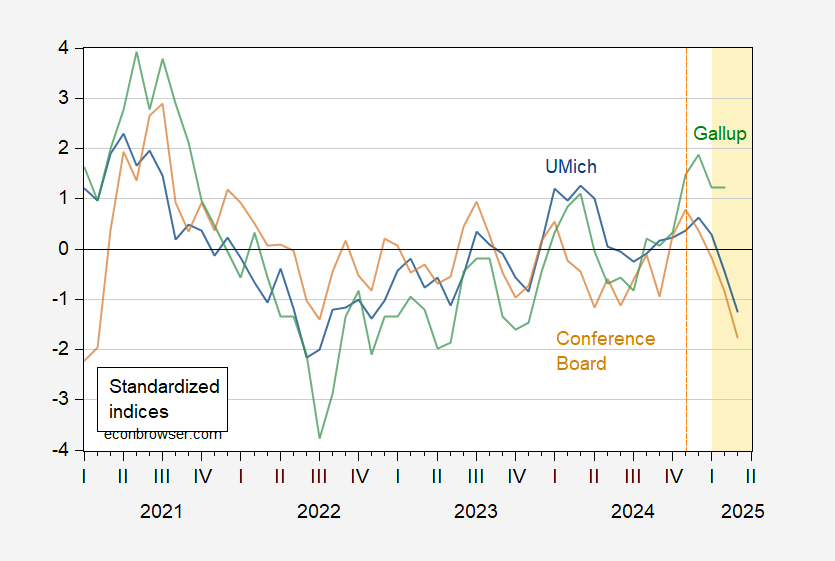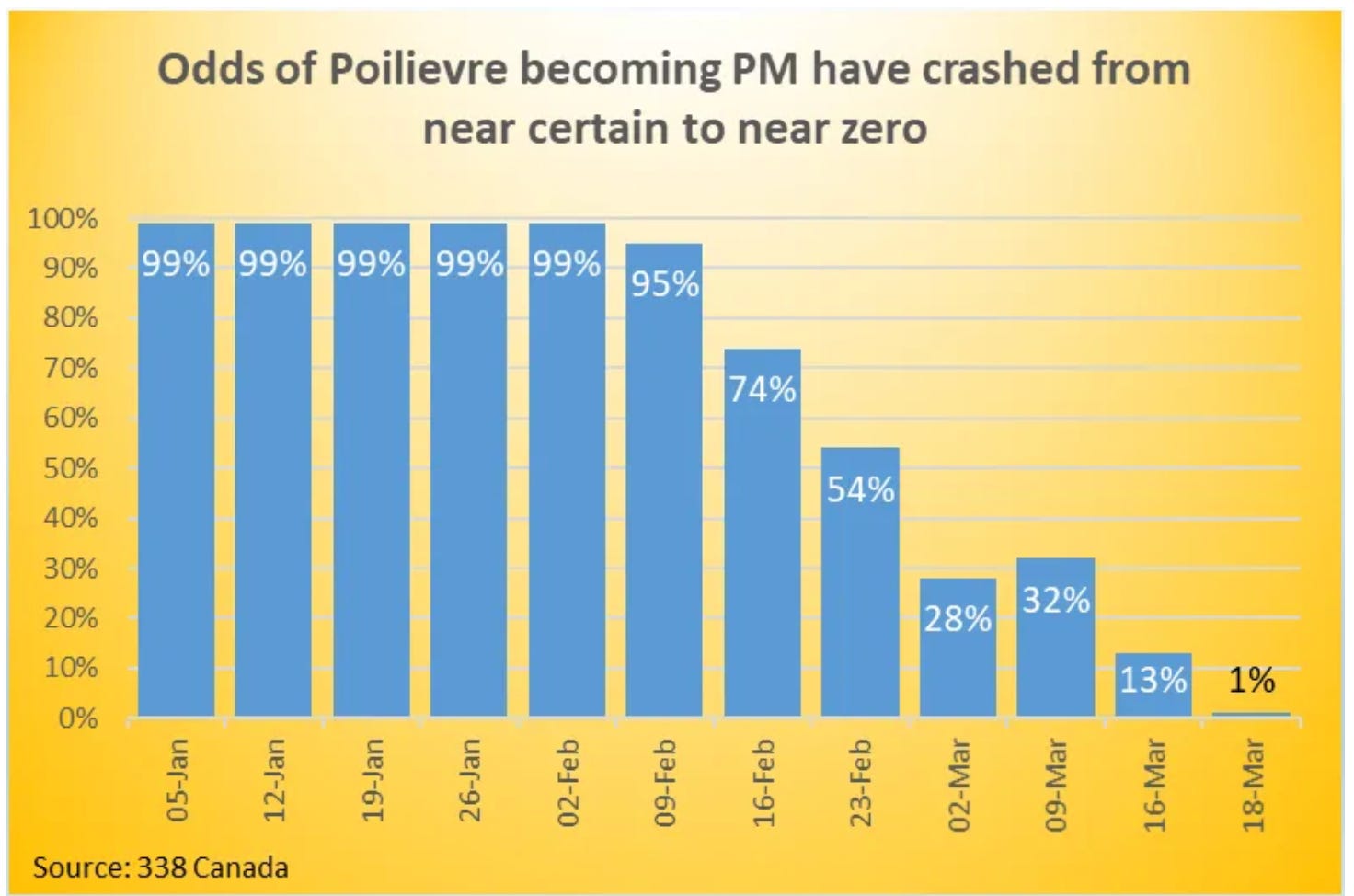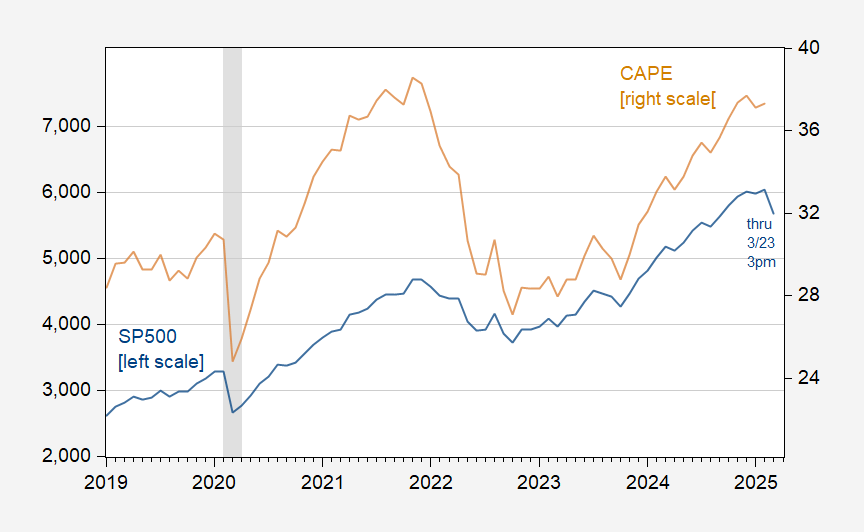
2961. Republican lawmakers seek to put PBS and NPR in the hot seat
Republican lawmakers are targeting public broadcasters PBS and NPR, questioning their funding and relevance amid broader discussions on government efficiency.
your daily dose of economic commentary

Republican lawmakers are targeting public broadcasters PBS and NPR, questioning their funding and relevance amid broader discussions on government efficiency.

Jon Murphy discusses methodological cosmopolitanism, emphasizing the importance of considering the global impact of economic policies, particularly tariffs, on all affected parties.

Menzie Chinn discusses the decline in US consumer confidence as indicated by the Conference Board index and compares it with other sentiment measures.

Scott Sumner discusses how ambiguous U.S. foreign policy has historically led to costly wars, highlighting examples like the Gulf War and the Korean War.

An argument that progressive policies in blue states hinder development, causing population loss, while red states thrive due to more favorable growth conditions and policies.

The post highlights various stories related to economic principles, including financial aid, consumer behavior, smuggling, toll revenue, and transportation costs in New York City.

A narrative explores the absurd political maneuvers surrounding TikTok's ban, highlighting the opportunistic behavior of politicians and the implications for governance and society.

The post features a podcast episode discussing the personal journey and research contributions of an econometrician, highlighting her influential work in causal inference.
Alex Tabarrok discusses Argentina's deregulation efforts and their positive economic impacts under Milei's leadership, highlighting increased freedom and reduced costs.
An argument that Labour's reluctance to raise taxes reflects poor strategic analysis, potentially jeopardizing its electoral prospects and ability to address economic challenges.

Observations about Canada’s political landscape highlight its response to U.S. influences, the impact of Trump’s actions, and broader implications for national pride and economic policy.

Bill McBride discusses the increase in new home sales in February and provides data from the U.S. Census Bureau and HUD regarding housing supply and sales trends.

The release of Mintz Group employees reflects China's efforts to attract foreign investors and rejuvenate its struggling economy.

The post discusses January's home price index data, highlighting annual increases and regional variations, while noting factors affecting market activity and affordability.

Home health care workers in Nevada are advocating for a minimum wage increase to $20 per hour to address rising demands in their sector.

The post explores public perceptions of the economy by gathering opinions across various locations in the U.S. regarding the state of the 2025 economy.
An argument that highlights the historical challenges and impracticalities of implementing a land value tax, particularly in relation to local government funding issues.

The post discusses stock market trends, recession predictions, and their relationship with economic indicators like interest rates and policy uncertainty.

The post discusses mortgage rates, upcoming economic reports on house prices and new home sales, and their potential impact on the housing market.

John Phelan discusses how China's trade surpluses, while seemingly beneficial, have historically led to negative consequences for the country and its citizens.